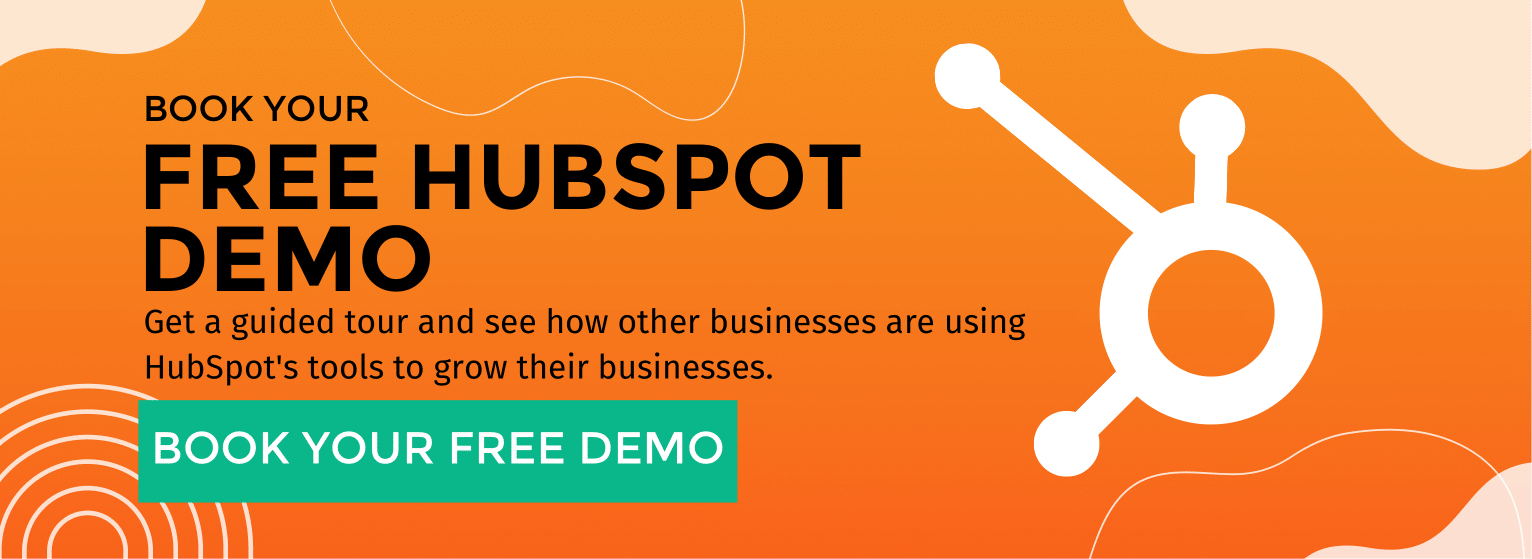What Is B2B Marketing Automation And Why Does It Matter?
by Will Williamson on 07-Jan-2025 11:07:45

Two of the questions that often come up when chatting to customers are: What is B2B marketing automation, and why does it matter? This article will answer these questions and explain the importance of marketing automation for B2B businesses.
In a nutshell: Business-to-business marketing automation explained
Essentially, B2B marketing automation refers to the use of specialised software tools or platforms to automate, streamline, and measure repetitive marketing tasks and workflows – either aimed at B2B customers or used by B2B businesses. Marketing automation saves you time and money by helping you to manage complex marketing processes more efficiently, make better use of your time, target specific market segments and audiences, and nurture leads through their buyer journey with minimal manual effort.
Marketing automation software typically integrates multiple marketing channels, including social media, Customer Relationship Management (CRM), email marketing, paid advertising, and content management, to create a tailored and consistent experience for your prospects and existing customers.
Why does this matter?
The benefit of B2B marketing automation for your business is often a higher ROI from your marketing spend. By streamlining your marketing efforts and empowering your sales team to prioritise the most qualified prospects, an automation platform will help you achieve better results with less manual intervention. Investing in marketing automation can help you allocate your resources more efficiently, reducing waste and boosting returns.
An automation platform can also help you deliver more personalised content to each prospect, increasing engagement and closures. The platform could, for instance, email tailored product or service recommendations based on a lead’s browsing history, industry needs, or their ‘point of entrance’ (e.g. the landing page, article, advert, or social media post through which they discover your website).
Marketing automation can also facilitate better collaboration between your marketing and sales functions. With shared access to real-time data through your CRM, your marketing and sales people and any external partners can work more closely together to qualify leads, deliver consistent content, and convert prospects, creating a unified process for driving revenues.
How does B2B marketing automation differ from B2C?
B2B and B2C businesses use many of the same tools. However, marketing automation is often particularly valuable in a B2B context, in which purchasing decisions often involve a longer sales cycle and multiple stakeholders. A good marketing automation system gives you better control and visibility over your communication and sales processes, helping you nurture prospects towards conversion without the risk of sales being unnecessarily delayed or going cold.
What features should you look for in a B2B marketing automation platform?
1. Lead Nurturing
Lead nurturing is the process of building relationships with potential customers who are not yet ready to make a purchase. This is essential for B2B businesses, where many people who get in touch with you will be at an early, ‘awareness’ stage of their journey. Automation helps you to deliver timely and relevant content to these prospects based on their behaviour, interests, and engagement history with your business. For example, if someone downloads a free e-book from your website about a certain product or issue, the platform can trigger a follow-up email workflow with related resources, instigating a conversation with the customer. This keeps prospects engaged, helps to develop trust, and moves them closer to conversion.
2. Email Marketing
Email is a critical component of B2B marketing and sales, so a good automation platform will help you segment your contact database and coordinate various email campaigns tailored to specific buyer groups, or personas. A lot of modern platforms, such as HubSpot, come with advanced features such as automated follow-ups and dynamic content so that each recipient receives a targeted message aligned with their position in the sales funnel.
3. CRM Integration
Integrating a sales CRM with a marketing automation platform bridges the gap between marketing and sales processes, and saves you a lot of time updating and accessing information. Through CRM integration, all your customer and prospect data is centralised in one place, helping you communicate more efficiently with your customers and keeping your teams on the same page with each sale. By improving the accuracy of your lead scoring systems and tracking each lead’s progress, your sales team can access detailed insight into each prospect’s interactions with your marketing collateral, helping them focus on high-value opportunities for conversion.
4. Reporting And Analytics
Most automation tools now come equipped with an inbuilt analytics dashboard to help you measure the performance of each campaign. Essential sales metrics such as email open rates, click-through rates, social media shares, website traffic, bounces, return visits, lead generation trends and other factors give you actionable insights on which to improve and strengthen your campaigns, helping you refine your strategy over time.
Next steps
To find out more about B2B marketing automation and the benefits for your business, please contact one of the inbound marketing specialists at JDR today. We can help you identify and define what you want to achieve from marketing, implement an automation platform that meets your goals and budget, and set up the platform to create targeted workflows and campaigns that can be scaled to your needs as your business grows. Click here to find out more.
Image Source: Canva
- Inbound Marketing (SEO, PPC, Social Media, Video) (824)
- Strategy (363)
- Sales & CRM (195)
- Marketing Automation & Email Marketing (190)
- Business Growth (164)
- Website Design (160)
- Hubspot (138)
- Lead Generation (115)
- Google Adwords (98)
- Content Marketing (94)
- Conversion (48)
- Case Studies (47)
- News (47)
- Ecommerce (39)
- Webinars (34)
- SEO (24)
- AI (20)
- Events (19)
- Video (17)
- LinkedIn Advertising (15)
- Video Selling (15)
- Software training (13)
- Niche business marketing (11)
- The Digital Prosperity Podcast (10)
- Facebook Advertising (6)
- HubSpot Case Studies (5)
- December 2025 (10)
- November 2025 (6)
- October 2025 (17)
- September 2025 (16)
- August 2025 (14)
- July 2025 (14)
- June 2025 (5)
- May 2025 (19)
- April 2025 (15)
- March 2025 (13)
- February 2025 (13)
- January 2025 (8)
- December 2024 (2)
- November 2024 (4)
- October 2024 (21)
- September 2024 (4)
- August 2024 (8)
- July 2024 (14)
- June 2024 (16)
- May 2024 (25)
- April 2024 (15)
- March 2024 (18)
- February 2024 (5)
- January 2024 (10)
- December 2023 (6)
- November 2023 (10)
- October 2023 (13)
- September 2023 (12)
- August 2023 (14)
- July 2023 (13)
- June 2023 (14)
- May 2023 (15)
- April 2023 (13)
- March 2023 (14)
- February 2023 (13)
- January 2023 (15)
- December 2022 (13)
- November 2022 (6)
- October 2022 (8)
- September 2022 (22)
- August 2022 (15)
- July 2022 (13)
- June 2022 (16)
- May 2022 (14)
- April 2022 (16)
- March 2022 (17)
- February 2022 (11)
- January 2022 (8)
- December 2021 (6)
- November 2021 (7)
- October 2021 (11)
- September 2021 (10)
- August 2021 (7)
- July 2021 (7)
- June 2021 (4)
- May 2021 (4)
- April 2021 (1)
- March 2021 (3)
- February 2021 (5)
- January 2021 (4)
- December 2020 (7)
- November 2020 (6)
- October 2020 (5)
- September 2020 (9)
- August 2020 (18)
- July 2020 (17)
- June 2020 (17)
- May 2020 (10)
- April 2020 (21)
- March 2020 (24)
- February 2020 (21)
- January 2020 (12)
- December 2019 (23)
- November 2019 (12)
- October 2019 (14)
- September 2019 (16)
- August 2019 (15)
- July 2019 (13)
- June 2019 (6)
- May 2019 (8)
- April 2019 (4)
- March 2019 (2)
- February 2019 (2)
- January 2019 (2)
- December 2018 (3)
- November 2018 (24)
- September 2018 (11)
- August 2018 (9)
- June 2018 (3)
- May 2018 (6)
- April 2018 (14)
- March 2018 (12)
- February 2018 (16)
- January 2018 (15)
- December 2017 (15)
- November 2017 (18)
- October 2017 (23)
- September 2017 (19)
- August 2017 (28)
- July 2017 (27)
- June 2017 (25)
- May 2017 (18)
- April 2017 (17)
- March 2017 (16)
- February 2017 (17)
- January 2017 (14)
- December 2016 (21)
- November 2016 (27)
- October 2016 (25)
- September 2016 (16)
- August 2016 (20)
- July 2016 (19)
- June 2016 (14)
- May 2016 (20)
- April 2016 (24)
- March 2016 (22)
- February 2016 (28)
- January 2016 (27)
- December 2015 (28)
- November 2015 (19)
- October 2015 (9)
- September 2015 (12)
- August 2015 (5)
- July 2015 (1)
- June 2015 (10)
- May 2015 (3)
- April 2015 (11)
- March 2015 (14)
- February 2015 (15)
- January 2015 (12)
- December 2014 (2)
- November 2014 (23)
- October 2014 (2)
- September 2014 (2)
- August 2014 (2)
- July 2014 (2)
- June 2014 (7)
- May 2014 (14)
- April 2014 (14)
- March 2014 (7)
- February 2014 (2)
- January 2014 (7)
- December 2013 (9)
- November 2013 (14)
- October 2013 (17)
- September 2013 (3)
- August 2013 (6)
- July 2013 (8)
- June 2013 (4)
- May 2013 (3)
- April 2013 (6)
- March 2013 (6)
- February 2013 (7)
- January 2013 (5)
- December 2012 (3)
- November 2012 (2)
- September 2012 (1)
Subscribe by email
You May Also Like
These Related Blogs

Why Inbound Marketing Is The Future Of B2B Marketing
We’ll start by saying that inbound marketing is the present of B2B marketing, as well as the future. B2B purchasing behaviour today is very different …

B2B Marketing for IT Companies
Marketing products, from one business to another, have become of great importance in today’s marketing and commerce driven environment. Partnerships t …

Facebook Marketing For B2B Lead Generation
I have put together some tips that will help you to use Facebook marketing to increase your leads. Let me start by saying there are usually 3 camps of …




